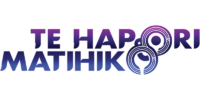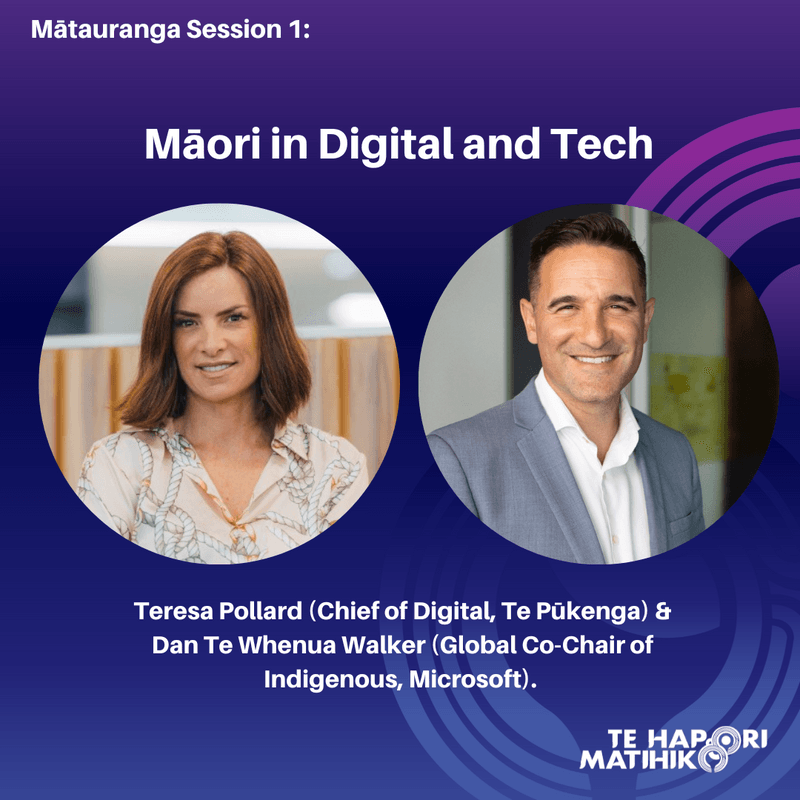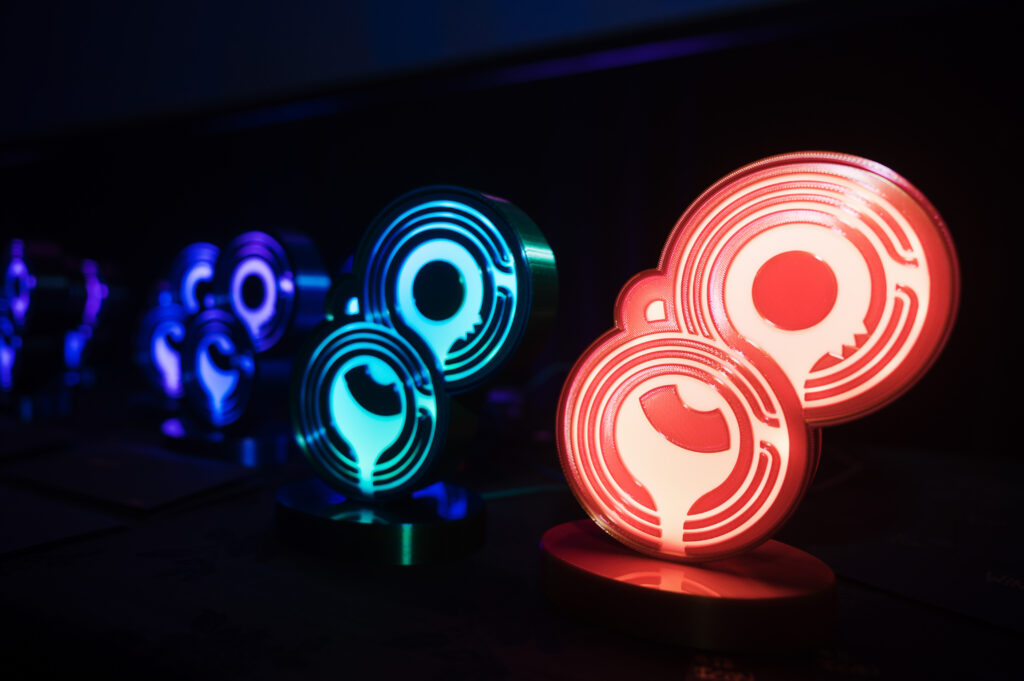We were joined by two trailblazers in digitech in Aotearoa, Teresa Pollard, Chief Digital Officer at Te Pūkenga and Dan Te Whenua Walker, Channel Sales Executive & Global Co-Chair of Indigenous at Microsoft.
Due to interruptions because of the storm, our room was changed and our visuals are fuzzy in the video – arohamai e te whānau! We’ve put it on audio for you to listen to instead and the video is at the bottom if you prefer to watch.
Te Hapori Matihiko · Mātauranga Session 1: Being Māori in Digital and Tech
Here’s the top take outs from this session, and keep reading for the detailed notes.
Key take outs:
- Find your people! Make connections who offer you different perspectives and who you can trust. One of our superpowers is collectivising and having people in your corner (like this hapori).
- Reach out and connect to someone that you don’t know. You’re guaranteed to find alignment and connection.
- Call out brownwashing! This is when leaders say they tautoko Māori but don’t do anything to back it up. If people want Māori mātauranga, they need to pay for it.
- Tech may be good for Māori but Māori are good for tech! We’ve got to bring our own unique flavour to it.
- If you’re not sure where to start, just get started doing anything, and know that being a haututu is a good thing.
- If we’re not at the table, we’re on the menu. We’ve got to be at the table to influence decisions.
1. How did you get into digital and tech, tell us a little about your journey?
Teresa: I held my current role for 7 months and I’ve worked within the tech Industry for over 20 years. I didn’t take the traditional route. I studied a double degree in Business at Auckland University and fell into a tech business because of a friend. I began my tech career at Fuji Xero, moved to singapore where I led Software and Sales. I relocated to New York where I ran teams in Xero operations. Then I moved back home to Aotearoa to have my babies, and worked at NZ Trade and Enterprise on the Māori team, and at Microsoft and as I was leaving, my mate here was coming in! I then went to Datacom where I did a number of things advocating for Māori and Pasifika until I joined this role at Te Pūkenga.
Dan: I dropped out of high school and found myself going down the wrong track. In my 20s, I started in a retail position at Dick Smith Electronics and worked my way up into a National Sales Manager role at 27. From there, my wife and I started a business that failed, but it was a humbling experience. I went on to work for Noel Leemings as a National Sales Manager then moved to Samsung and grew the business to $1B. Pivoted and moved into roles at Dell and then Microsoft.
2. What are some of the challenges you faced working in non-Māori spaces?
Teresa: I grew up in both a Pakeha and Māori world. My connection to my taha Māori was through my grandmother. During high school I felt disconnected but managed to reconnect to my culture in university. Although, I felt like I was still searching and when my grandmother passed, it made reconnecting even harder.
During my career I have often been the only female and only Māori amongst predominantly white males. I also didn’t look stereotypically Māori and would often get questions like “How Māori are you?” I battled my way in my career from 25 to 35 to find that “vibe” or connection to who I was. I’ve learnt a lot over the years, and it’s my taha Māori that centres me. It’s taken a while to connect and I’ve only reconnected over the last 5 years.
Dan: I grew up in Christchurch somewhat disconnected from my culture, which caused a lot of issues surrounding my identity. I wanted to be more Māori but didnt know what that meant. Throughout my career I have also often been one of a handful of Māori within the corporations I’ve worked for, and in these tech environments it can be tough on your wairua and who you are. I think this is why so many Māori leave tech corporations and start their own businesses.
3. What is some advice you can give to our community/hapori to help them navigate some of the challenges that you’ve faced in your career and your journey?
Teresa: Find your people. In terms of the connection where can you go to feel safe, share feelings, navigate different situations. Life is interesting and you get thrown challenges that you’re not prepared for.
Your people will see things from different angles and perspectives, especially when things feel very heavy or when it feels like there isn’t a way out. The key thing is to not feel alone. Reach out and find others, find mentors and peers who you can share these things with.
Dan: Find your people! If it’s not in the organisation you work for then find it outside. It’s one of our superpowers when we collectivise, when we come together. Find a space of collectivisation, even if they are your allies. This hapori is extended whānau, knowing that you have people in your corner like this.
4. What are some actions or steps that our community can take to overcome some of these challenges that we are talking about? What are some tangible actions?
Teresa: Being uncomfortable is a good thing, to stretch you when you’re in development, because when we’re uncomfortable, we learn. So one action is to reach out and connect to someone in this group that you don’t know. Take some time to connect with someone and understand their story. I can guarantee you that you’ll find some alignment, some similarities, some kind of way to be able to connect whether whakapapa or mahi, but stretch yourself, think about a step forward that has been different to what you’ve had the day before.
Dan: For those who are in an organisation that is not their own, we need to also be calling out any brownwashing. This is when leaders say the tautoko Māori but don’t do anything to back it up.
Also if you’re in an organisation that is going to Māori externally, because you want access to their mātauranga, they need to pay for that. Too many organisations don’t want to promote their Maori from within, so they contract out externally and they don’t want to pay for it, so we need to call it out. If we do, and something happens then we come and tautoko and find ways to protect them.
We are forging new ground, we’re going to be taking a few hits. So our kids, when they come into these spaces, will have much more tautoko and support than we did.
Teresa: It can be challenging to bring a narrative to the executive team around why it’s important to acknowledge some of these things. Call on us, let us help you to be able to give some perspective. The great thing about Māori is a lot of the time we all know each other. Our “kumara vine” is strong, which is a good thing. Don’t feel alone, be a little bit more connected, know when it’s good to step forward and good to step back.
Audience patai:
What’s the ideal pathway into tech for young, middle aged and older adult whanau?
Teresa: Just start something and to know being a haututu is a good thing. Encourage our young people to try and it’s ok if you don’t like it, try something else. There are so many free resources and free courses, micro certs for example – find your gig.
Middle and older adults – it’s never too late to start your career. Again there are micro credentials – give it a go and see what you think. The more we can try and find our vibe, the better. IT is not a straight road, there’s a lot of different ways to get started and get involved. Don’t feel like you need to do an IT degree.
Dan: You could do a degree but we are examples that you don’t need to. Walk alongside our rangatahi and tap into their passions. If we force something it wont work, but if we can, link passions to technology. Tech is just a service, it’s there to serve us and to be in service to us. Maori have so many beautiful things we can bring to it. Tech is good for Maori but Maori is good for tech. We’ve got to make sure we are bringing our own flavour to it which is a unique special flavour, and then our kids will follow through. Everyone is moving towards tech, by default they’ll have to learn about it but lets connect to their passions.
How would either of you ask your managers for mātauranga training if they don’t see value in it?
Teresa: Think about the goal and a different pathway. I would sit down with my manager and say, this is part of my professional development to extend me, and if I can be better connected, that’s going to support me and my learning, I can be a better, more productive employee for you. Demonstrate the benefit. Sometimes you have to be able to give to get, and it’s not ideal but we all have to find a way to be able to get to a goal and think about a slightly different path to get there. We don’t want that to separate from who we are or our key centred values, but we need to be able to adapt to bring other people on the journey. Find the thing that is a connection to them that you can use, bring some synergy, rather than a cut and dry. Find out what are they interested in, what are they exploring, what are their passions and how can you draw a connection to those things. Sometimes it is a little more of a slower journey to get to the same goal.
Dan: At my age it’s non-negotiable.. If they are not going to go down that track of at least acknowledging that kaupapa maori is becoming a way of life here, then it’s not good enough. It’s only because I’m at this stage of life and everyones at different stages, and I don’t advocate for whanau to drop bombs like that, but I have connections and networks where I can do that. I’m lucky at Microsoft I have mentors and supporters.
Teresa: You need to find your people and it comes back to safety. Sometimes you can’t keep pushing a narrative that’s never going to come. And don’t ever undersell yourself to thinking that you have to stay in an organisation and keep battling when you don’t. When it becomes unsafe that’s not a good place to be. Use the kumara vine to say this isn’t working for me. What other opportunities can I find to go sideways and to do something else where I can find safety and connection and find my people?
Dan: Also, if they don’t accept the strategy, that’s one thing. You can still do little things if you want to be in that org and you can do it by stealth.
Biggest challenge you see for Maori in tech and what can we all do about it?
Teresa: Just get into tech. One issue I am experiencing is that I am currently recruiting and I have had only 1 maori apply for 1 of 7 roles. This is the biggest challenge for me.I have a team of 500, and only a handful are maori and most are white men. There’s nothing wrong with that, but we’re trying to design for a diverse world in a diverse country, and if i don’t have representation of diversity and experiences of different people, I can’t create what needs to be happening for vocational education for this country. So it’s very important that I find that, but there’s also a balance. I can’t just put Maori into roles that don’t have the experience either. I don’t want people to go into roles and sink, and then they’ll drown and feel like a failure. So what we need to do is push ourselves again and to find these opportunities and broadening ourselves through our connections in our groups and making sure that we are coming through the ladder. Develop people at pace, and that they are ready for some of these big roles and can be there so that our young people can see themselves in the next level of leadership and can be inspired, but right now it’s a challenge.
Dan: Big picture it’s important, if we look at tech and the latest trends AI is massive, it’s amazing but also scary. It makes us wonder who is writing the algorithms and where is the data coming from? How do we make sure this isn’t another form of colonisation? We need to start infusing what’s magic for us, into that space and change that dynamic. Maori don’t put money as the centre of everything we put so much more, awa, land, atua, our people. There is an opportunity for Maori to start leading that narrative. Maori have something to offer to the world, to start moving AI and this tech away from damaging us to helping us to thrive. The time is now, because it’s moving really fast. If we’re not at the table, we’re on the menu.
Teresa: If we want to influence decisions, we’ve gotta be at the table.







